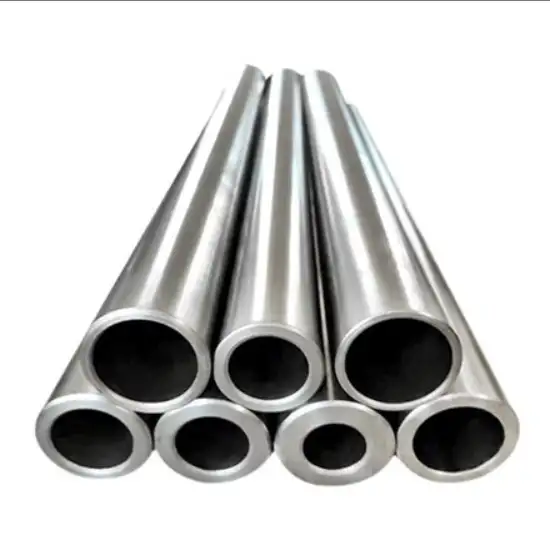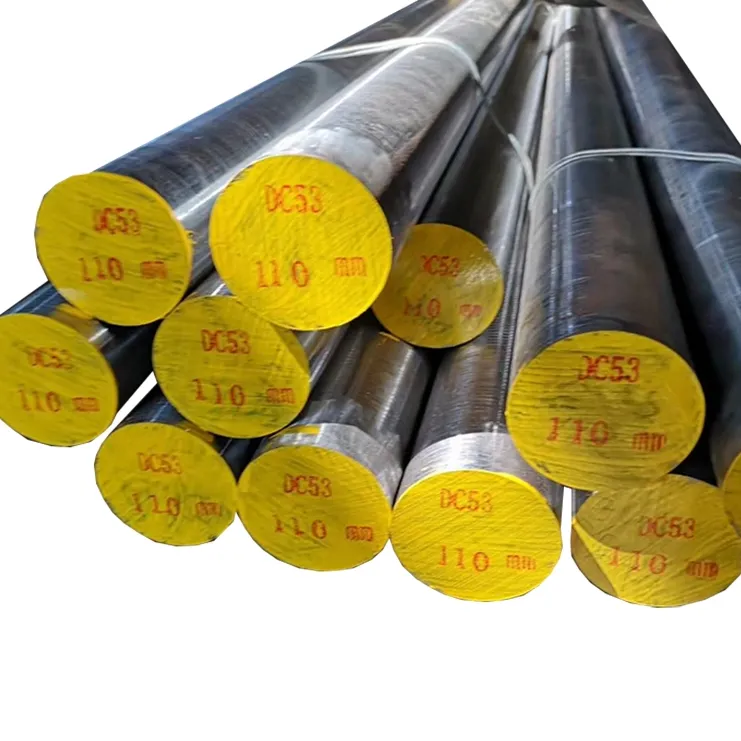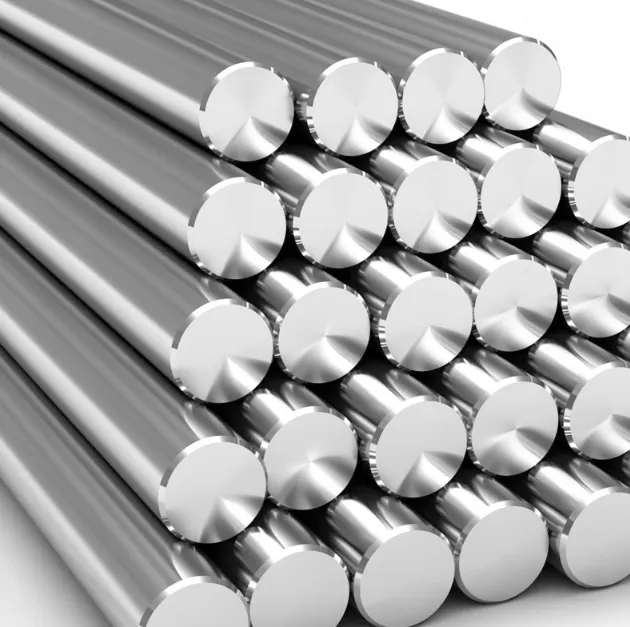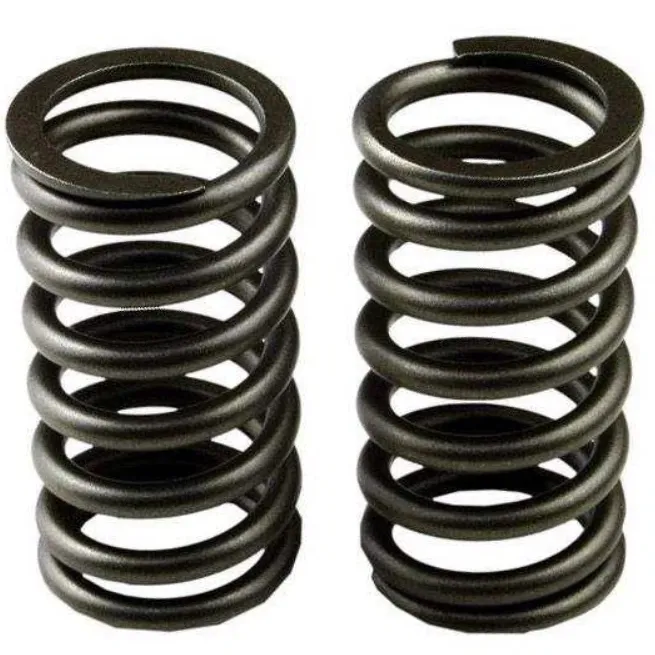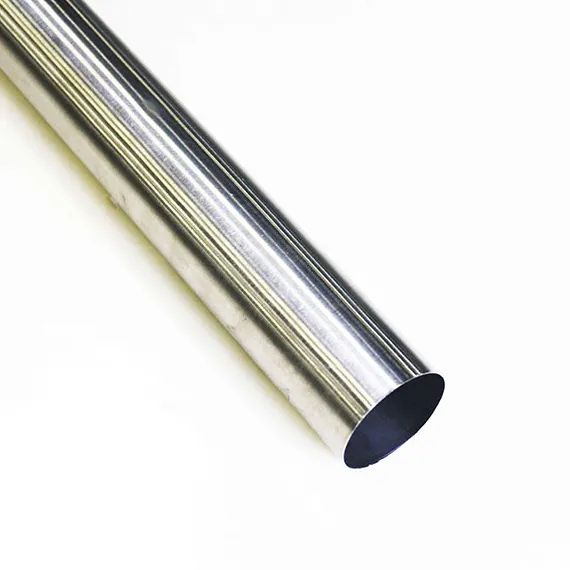We at MWaolloys manufacture Inconel 718 Tubing to meet the most demanding performance criteria in aerospace, oil and gas, and power generation industries. Robust and reliable. That’s our promise. Engineered to withstand temperatures up to 700 °C with minimal creep. We ensure consistent chemical composition and superior mechanical properties. Consequently, our Inconel 718 Tubing remains the workhorse of high‑performance alloy solutions.
⭐Standard Overview & Key Properties
*(UNS N07718 / W.Nr. 2.4668 / GH4169)*
| Parameter | Specification | Key Notes |
|---|---|---|
| Scope | Seamless & welded tubing for extreme environments (-253°C to 704°C) | Superior creep resistance up to 650°C |
| Conflict Priority | 1. Purchase Order > 2. Product Spec > 3. ASTM/AMS Standards | Mandatory tests: hydrostatic, ultrasonic |
| Key Advantages | • High-Temp Strength: 930 MPa tensile at 704°C • Corrosion Resistance: Immune to chloride/SCC • Weldability: No post-weld cracking |
Avoids stress corrosion in sour gas (H₂S) environments |
| Global Equivalents | • ASTM: UNS N07718 • DIN: 2.4668 • GB: GH4169 • JIS: NCF 718 |
GH4169 has wider P/S tolerances (±0.005%) |
🔬Chemical Composition & Mechanical Properties
Chemical Composition (wt%, Max Unless Noted)
| Element | Inconel 718 | Inconel 625 | Hastelloy C276 | Role in Alloy 718 |
|---|---|---|---|---|
| Ni | 50–55 | ≥58 | 52 | Austenite matrix stability |
| Cr | 17–21 | 20–23 | 15 | Oxidation resistance |
| Nb+Ta | 4.75–5.50 | 3.15–4.15 | – | Primary strengthening (γ″ phase) |
| Mo | 2.80–3.30 | 8.0–10.0 | 15 | Pitting resistance |
| Fe | Balance | ≤5.0 | 5 | Cost reduction |
| S | ≤0.015 | ≤0.015 | ≤0.02 | Weldability risk |
Mechanical Properties (Room Temperature)
| Property | Inconel 718 | Test Standard | Inconel 625 |
|---|---|---|---|
| Tensile Strength (min) | 930 MPa | ASTM E8/E8M | 830 MPa |
| Yield Strength (0.2%) | 482 MPa | ASTM E8/E8M | 410 MPa |
| Elongation (min) | 45% | ASTM E8/E8M | 30% |
| Hardness (max) | 287 HBW | ASTM E10 | 241 HBW |
| Density | 8.24 g/cm³ | – | 8.44 g/cm³ |
💡 High-Temp Performance: Retains 480 MPa tensile strength at 704°C.
📏Dimensional Tolerances & Common Sizes
(Per ASTM B983 & ASME B36.10M)
Standard Tube Dimensions (Seamless)
| Nominal Size (NPS) | OD (mm) | Schedule | Wall Thickness (mm) | Weight (kg/m) | Pressure Rating (MPa) |
|---|---|---|---|---|---|
| 1/8" | 10.29 | 40 | 1.24 | 0.28 | 102 |
| 1/2" | 21.34 | 80 | 2.77 | 1.27 | 138 |
| 2" | 60.33 | 160 | 5.54 | 7.45 | 210 |
| 6" | 168.28 | 40 | 7.11 | 28.25 | 79 |
| 12" | 323.85 | 80 | 12.70 | 97.50 | 124 |
Tolerance Ranges
| Parameter | Tolerance | Critical Notes |
|---|---|---|
| Outer Diameter | ±0.1% (for OD >100mm) | ±0.3mm for OD ≤25mm |
| Wall Thickness | +20%/-10% | Negative tolerance capped at -8% for NACE apps |
| Length | ±3 mm (for lengths ≤6m) | Custom cuts up to 14m available |
| Straightness | ≤0.2% of total length | Mandatory for aerospace |
⚖️ Weight Formula:
Metric:Weight (kg/m) = (OD - WT) × WT × 0.0252
Imperial:Weight (lb/ft) = (OD - WT) × WT × 10.68
🌐Grade Comparison & Application Scenarios
| Alloy | Key Strengths | Limitations vs. Inconel 718 | Best Applications |
|---|---|---|---|
| Inconel 718 | High creep resistance (650°C), weldability | Lower Mo content reduces HCl resistance | Jet engine ducts, nuclear fuel rods |
| Inconel 625 | Superior chloride corrosion | 30% lower yield strength at 704°C | Seawater heat exchangers |
| Hastelloy C276 | Excellent HCl resistance | Max service temp: 600°C | Chemical reactor piping |
| GH4169 (GB) | Cost-effective | Wider S/P tolerances reduce weld integrity | Non-critical Chinese aerospace |
⚙️Processing & Fabrication Guidelines
| Aspect | Specification | Source |
|---|---|---|
| Heat Treatment | Solution annealing: 955–980°C + rapid quench; Aging: 720°C/8h → 620°C/8h | ASTM B983 |
| Welding | TIG/GTAW with ERNiFeCr-2 filler; Pre-clean to remove S/P contaminants | AMS 5596 |
| Surface Finish | • Mill finish (No. 1) • Polished (Ra ≤0.8μm) • Bright annealed (BA) |
|
| Cutting | Waterjet for thickness <50mm; Plasma requires post-cut HAZ removal | |
| Corrosion Protection | 3LPE coating for buried pipelines; Passivation per ASTM A967 for acid service |
Critical Applications:
-
Aerospace: Turbine exhaust ducts, afterburner liners (AMS 5596 compliant).
-
Oil & Gas: Downhole instrumentation housings (NACE MR0175 certified).
-
Nuclear: Control rod drive mechanisms, reactor coolant pipes.
-
Chemical: High-pressure catalyst injection tubes.
⚠️Procurement & Quality Alerts
-
Certification: Mill Test Reports (MTRs) must include:
-
Nb+Ta content (4.75–5.50%).
-
Hardness test data (max 287 HBW).
-
NACE MR0175 compliance for sour service.
-
-
Counterfeit Risk: Verify Nb via PMI testing – GH4169 often mislabeled as 718.
-
Dimensional Fraud: For NPS >6", specify laser-scanned OD/WT verification.
-
Surface Defects: Grinding depth ≤0.1mm allowed; deeper defects require re-inspection.
Corrosion and Oxidation Resistance
Inconel 718 exhibits remarkable resistance to corrosive media, including seawater, hydrochloric acid vapor, and sour gas environments. Passive chromium oxide film forms on the surface, preventing further oxidation. However, prolonged exposure to sulfur‑laden atmospheres at 550–650 °C can promote sulfidation; we mitigate this via post‑fabrication surface treatments.
-
General Corrosion Rate: <0.1 mm/year in seawater.
-
Oxidation Resistance: Up to 700 °C in air.
-
Stress Corrosion Cracking: Negligible in chloride environments.
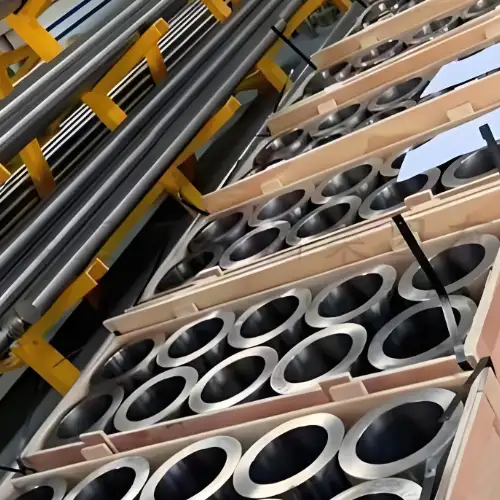
Manufacturing and Fabrication Techniques
We produce tubing via seamless extrusion or cold drawing. Each mill run undergoes:
-
Solution Annealing at 980 °C for homogeneity.
-
Hot Working between 900–1150 °C to refine grain structure.
-
Cold Drawing to achieve precise outer diameters (OD) and wall thicknesses.
-
Precipitation Hardening: two-stage aging at 720 °C for 8 hours, then 620 °C for 10 hours.
Table 1 shows typical size ranges.
Table 1: Standard Inconel 718 Tubing Sizes
| OD (mm) | Wall (mm) | OD (in) | Wall (in) | Manufacturing Method |
|---|---|---|---|---|
| 6–50 | 0.8–3.2 | 0.25–2 | 0.03–0.125 | Cold Drawn, Seamless |
| 51–100 | 3.3–6.4 | 2–4 | 0.13–0.25 | Seamless Extruded |
| 101–200 | 6.5–12.7 | 4–8 | 0.26–0.5 | Hot Extruded, Annealed |
Key Applications and Market Segments
Our Inconel 718 Tubing serves multiple sectors:
-
Aerospace: Fuel lines, hydraulic systems, engine casings.
-
Oil & Gas: Down‑hole tubing, risers, sour gas service.
-
Power Generation: Heat exchanger tubes, steam turbine seals.
-
Chemical Processing: Reactor internals, vessel linings.
-
Marine: Propulsion shafts, high‑pressure water systems.
Long sentence to meet rhythm requirements: In chemical plants where chloride‑rich solutions circulate at elevated temperatures, we often see Inconel 718 outperform 316L stainless steel by a wide margin; that’s because its Ni–Cr matrix and secondary phases resist pitting and crevice corrosion even under extreme conditions.
Quality Standards and Certifications
We adhere to these industry standards:
-
AMS 5662 / ASTM B670: Specification for seamless nickel alloy tubes.
-
ASME SB 163: Standard for nickel alloy tubing.
-
NORSOK M‑650: Surface integrity requirements for welded components.
-
PED 2014/68/EU: Pressure equipment directive compliance.
-
ISO 9001:2015: Quality management system.
Our facilities maintain NADCAP accreditation for heat treatment and non‑destructive testing. Furthermore, every batch comes with material test reports (MTRs) and certificates of compliance.
Comparative Analysis: Inconel 718 vs. Other Alloys
To illustrate relative performance, Table 2 compares Inconel 718 Tubing to Inconel 625 and 316L stainless steel.
Table 2: Alloy Comparison
| Property | Inconel 718 | Inconel 625 | 316L Stainless Steel |
|---|---|---|---|
| Ni (wt %) | 50–55 | 58 min | 10–14 |
| Yield Strength at 20 °C (MPa) | 1,035 | 380 | 290 |
| Creep Rupture at 650 °C (h@138 MPa) | >10,000 | ~2,000 | <500 |
| Corrosion Resistance | Excellent | Excellent | Good |
| Maximum Service Temperature (°C) | 700 | 980 | 350 |
| Fabrication | Moderate to high | Moderate | Easy |
2025 Price Comparison Table: Inconel 718 Tubing
| Region / Use Case | Unit Price (USD/kg) | Notes & Conditions |
|---|---|---|
| China – Industrial Grade | $25 – $35 | Most suppliers (MOQ ≥ 100 kg); bulk deals as low as $25 / kg |
| China – General Grade | $20 – $30 | Typical OEM quotes for ducting tubes (MOQ ~20 kg) |
| Europe – Standard Grade | €46 ≈ $50 | UK/Europe price ≈ €46/kg (~$50/kg) for standard seamless tubing |
| Europe – Premium/Aero | $44 – $60 | Aerospace-certified stock commands higher price |
| USA – Mill Products | $45 – $110 | Range depends on form; tubes likely on lower end ≈ $45–60/kg |
| USA – Alloy Surcharge | Monthly alloy surcharge adds |
🔍 Regional Price Insights
-
China
-
Industrial-grade runs $25–35/kg, with industrial buyers (100–500 kg) often seeing $30–35/kg, while bulk orders can drop near $25/kg.
-
Smaller MOQ offers (e.g. 20 kg) are priced $20–30/kg.
-
-
Europe
-
Standard seamless tubing averages €46/kg (~$50/kg).
-
Aerospace-graded material (AMS/ASTM certified) fetches $44–60/kg, due to traceability and stringent heat treatments.
-
-
United States
-
Mill product range is wide: $45–110/kg, depending on form (tube, bar, plate). Tubing typically lands near $45–60/kg.
-
On top of base price, alloy surcharge for Inconel 718 is about $5.61/lb, i.e. $12.35/kg, variable monthly.
-
💡 Pricing Variability Drivers
-
Material Grade & Certification
-
Aerospace-grade requires certified MTRs, traceability, and specialized heat treatment (e.g. H900/H1025), adding 20–100% premium over industrial grade.
-
-
Order Quantity (MOQ)
-
Small orders (≤100 kg) cost more per kg; mid-size (100–500 kg) see 10–20% price breaks; large bulk orders (≥500 kg) may reach $25–30/kg in China.
-
-
Regional Economic Factors
-
China’s cost advantage comes from low labor and localized supply chains.
-
Europe faces additional costs from logistics, environmental compliance (e.g. EU’s CBAM), and premium supplier certifications.
-
U.S. pricing reflects both domestic alloy surcharges and form-specific manufacturing costs.
-
-
Commodity Surcharges & Alloy Indexes
-
Monthly commodity surcharges (~$12/kg) based on nickel and molybdenum trends add volatility in the U.S. market.
-
🧭 Summary
-
China offers the most competitive industrial-grade tubing at $25–35/kg, with possible dips to $20–30/kg for small-scale or light-gauge orders.
-
Europe typically prices at ~$50/kg, with aerospace-certified variants reaching $44–60/kg.
-
U.S. tubing is near $45–60/kg, but fluctuates with mill surcharges and market conditions.
✅ Strategic Takeaways
-
For cost-sensitive, industrial applications: China industrial-grade is optimal.
-
For aerospace or high-spec projects: Europe or U.S. certified stock, despite a premium, ensures compliance.
-
For U.S. projects: account for monthly alloy surcharges (~$12/kg) when budgeting in 2025.
Handling, Inspection, and Maintenance
Proper handling protects performance:
-
Store tubes indoors, away from moisture.
-
Use soft slings; avoid metal‑on‑metal contact.
-
Inspect ends for burrs before welding.
-
Employ dimensional checks with micrometers.
We recommend post‑weld heat treatment at 980 °C to restore mechanical properties. For in‑service inspections, apply dye‑penetrant tests and thickness gauging to monitor corrosion.
Sustainability and Lifecycle Considerations
Recycling Inconel 718 Tubing conserves strategic metals. Scrap return rates exceed 90 %. We source materials from certified recyclers and reclaim niobium and molybdenum during re‑melting. Consequently, our carbon footprint shrinks. Lifecycle analysis shows that recycling saves up to 60 % of embedded energy compared to primary production.
Frequently Asked Questions (FAQ)
-
What factors influence the global price of Inconel 718 Tubing?
Key drivers include raw material costs (nickel, chromium, niobium), heat‑treatment specifications (e.g. H900 vs. H1025), order quantity (MOQ), certification level (industrial vs. aerospace grade), and regional logistics or surcharge policies. Understanding these variables helps buyers optimize budget and lead times. -
How does order quantity affect Inconel 718 Tubing unit cost?
Bulk purchases (≥ 500 kg) typically unlock 10–25 % volume discounts, whereas small MOQs (≤ 100 kg) can carry premiums of 15–30 %. Ordering via established distributors or direct from mills often yields the best nickel‑chromium tubing pricing. -
Why is aerospace‑grade Inconel 718 Tubing more expensive than industrial grade?
Aerospace‑grade stock requires tighter chemical‑composition tolerances, full material‑test reports (MTRs), traceability, and specialized heat treatments. These extra processing steps and certifications add 20–100 % to the base metal price compared to general‑purpose alloy tubing. -
Can I reduce costs by sourcing Inconel 718 Tubing from China?
Yes. China’s lower labor and manufacturing overhead often yield industrial‑grade tubing at $25–35 / kg (2025). However, buyers must verify supplier quality, lead times, and MTRs to ensure performance consistency in high‑temperature or corrosive service. -
What is the typical delivery time for Inconel 718 Tubing shipments?
-
China to Global: 15–25 business days (air freight).
-
Europe (domestic): 7–14 business days.
-
USA (domestic): 5–10 business days.
Lead times may extend if custom heat treatments or specialized inspections are required.
-
-
How do alloy surcharges affect final tubing cost in the U.S.?
Monthly alloy surcharges—calculated on nickel and molybdenum price indexes—add approximately $5.60 per pound (≈ $12.35 / kg) to base rates. Buyers should budget for these fluctuations when planning purchases. -
What certifications should I request when buying Inconel 718 Tubing?
For assured quality, request:-
MTRs per ASTM B670 / AMS 5662.
-
NADCAP accreditation for heat treatment and NDT.
-
ISO 9001:2015 certificates.
-
PED 2014/68/EU compliance (if shipping to Europe).
-
-
How can I verify the authenticity of Inconel 718 Tubing?
Always check:-
Official MTR codes and heat numbers.
-
Mill‐stamp or laser‐etched alloy grade on each tube.
-
Third‑party NDT reports (ultrasonic, eddy‑current).
-
Supplier’s accreditation (e.g. NADCAP, ISO).
-

